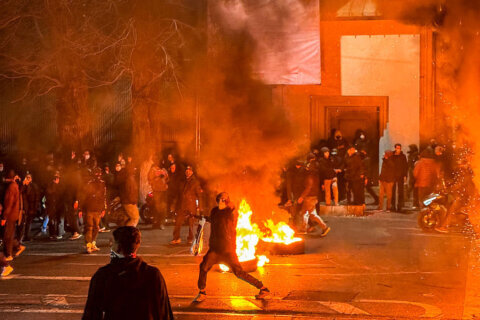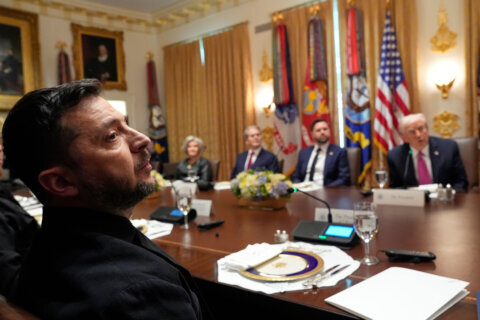WASHINGTON — The number of Russian tanks, planes and troops is beginning to grow in Syria as the government of Bashar al-Assad battles Syrian rebels, Islamic State terrorists and global public opinion in a desperate bid to stay in power.
But as the military buildup, which Russia is not denying, continues, the country’s leaders have been reminded not to forget the Soviet-Afghan war.
“What happened in Afghanistan can happen again,” said Patrick Skinner, director of special operations at the Soufan Group.
He was referring to the decade of war (Dec. 25, 1979, to Feb. 15, 1989) that saw the mighty Red Army humiliated by the Mujahedeen — led in part by then-unknown Osama bin Laden. At the peak of the war, more than 115,000 Soviet troops with superior technology and fighting skills fought up to 250,000 barely trained Mujahedeen. But when it was over, more than 14,000 Soviet troops had died and so had the country’s image as a global superpower.
Military experts have long said the factor that led to the downfall of the Soviet Army was the coming together of militant elements in Afghanistan. Another important element they had in the fight was the backing of the Central Intelligence Agency (CIA).
This time the militants are called terrorists, and they have no help from the CIA.
Skinner, a former CIA case officer with extensive experience in source handling and source networks, told WTOP Russia’s buildup “really does complicate matters and it plays right into Al Qaida leader Ayman al Zawahiri’s and every other extremist’s hands. That would provide the unifying target that they want.”
Russian President Vladimir Putin, addressing heads of states of ex-Soviet nations gathered in Tajikistan on Tuesday, said, “We are supporting the government of Syria in the fight against a terrorist aggression; (we) are offering and will continue to offer it necessary military-technical assistance. … Without the active participation of the Syrian authorities and the military, it would be impossible to expel the terrorists from that country and the region as a whole, and to protect the multiethnic and multi-confessional Syrian people from destruction.”
Russia’s military has been in Syria for many years, said Russian Foreign Minister Sergei Lavrov during a press briefing on Sept. 10. He said the Russian military’s presence is designed to supply weapons for the Syrian army, which is bearing the brunt of the war against terrorism, in particular the Islamic State and other extremist groups.
U.S. defense officials suggest the Russian government is close to panicking as the Islamic State and the Levant (ISIL) moves closer to ousting the Assad regime.
“Russia has certainly been a supporter of the Assad regime for some time and I think Putin has spoken more publicly about the role Russia has played to date,” said Christine Wormuth, defense undersecretary for policy, during testimony before the Senate Armed Services Committee on Wednesday. “I think part of what may be happening, part of Putin’s calculus may be, that Assad’s regime has been under greater threat in the last several months as ISIL has advanced in places like Palmyra and Tadmor. So Putin may be nervous about the stability of the Assad regime and may be trying to shore it up.”
Experts such as Skinner believe a Russian buildup plays right into the hands of extremist groups such as Al Qaida and ISIL.
“In theory they wanted the U.S. to put ground troops in. We didn’t do that, but if the Russians come in with some kind of force, it would mean catastrophic losses for the initial (terrorist) forces fighting the Russians, but they want to re-create that unity from the Afghanistan war from the ’80s. And the Russians, if they go into Syria, they would provide that,” said Skinner.
Secretary of State John Kerry called Lavrov on Sept. 5 to discuss Syria, including U.S. concerns about reports suggesting an imminent enhanced Russian military buildup there. The State Department said in a media note that Kerry “made clear that if such reports were accurate, these actions could further escalate the conflict, lead to greater loss of innocent life, increase refugee flows and risk confrontation with the anti-ISIL Coalition operating in Syria.”
The State Department said the two agreed that discussions on the Syrian conflict would continue in New York later this month.








